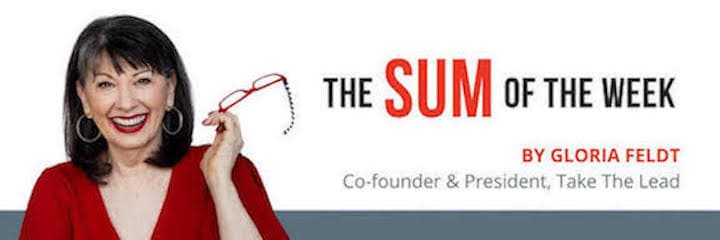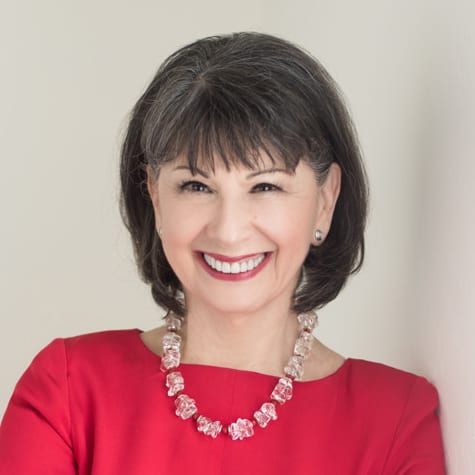Being Between: The Power To Create What’s Next

Issue 168 — May 31, 2021
It’s graduation season. A time of traditions.
Last year, graduation traditions, or rather the lack of them were a shock to the system. Regardless of which of the three available responses schools chose — cancel, postpone, or scramble to go virtual —there was much hand-wringing and mourning about what the students would miss.
Then we began to see heartwarming stories of creative ways parents and educators found to give students their due, such as school drive-bys en masse.
There were speeches, virtual of course. The constant was the speeches, largely on the same arc as always — a speaker’s personal story, followed by assurances that the future belongs to the graduates.

But did you notice that the virtual space made it possible for more people in disparate locations to join? And that most probably rendered more high profile speakers accessible to schools? No travel, no muss, no fuss. No shoes necessary.
As a frequent keynote speaker myself, I confess to being grateful that I have been able to pivot to virtual speeches so I haven’t had to go through the many inconveniences and unproductive time of traveling to venues, not to mention uncomfortable hotel pillows.
Half the country has now been vaccinated. Yes, that means the other half has not. Still, we’re approaching a time when we can take masks off and better yet we can see loved ones who have been vaccinated. We can actually hug them. Same with friends. Today I’m cooking a favorite meal for a small group of women who have been zooming every week since March, 2020. It feels so luxurious.
Many if not most of those school graduations are still virtual. But some are socially distanced, in-person outside events. We’re used to it now. It doesn’t feel so strange.
So it is with other aspects of life disrupted by the pandemic. New Yorkers and probably residents of other cities have made outdoor dining such a regular thing that we talk about hopes that the outdoor option remains, never mind noisy trucks lumbering by.
Working from home turns out to have its pluses as well as its minuses. Greater time and caregiving flexibility, for example. So much so that 40% of employees say they’d rather keep working remotely and companies are bracing for a hybrid return, testing out a number of modes to land on the most functional for their workforce.
I venture to say that if women had designed the workplace, it would have been more family-friendly like that in the first place but I’ll leave it to you to debate my theory.
We are experiencing many firsts on the way back to hugging and other things we think of as normal.
Because humans are eminently adaptable. This year we’re in a very different place than we were last year at this time. We’ve been chastened by horrendous losses, yet inspired by innovations that are enabling us to live and work productively.

Still, we haven’t yet created our “next.” I refrain from calling it the new normal as many are doing for two reasons. First the old normal was flawed in so many ways. I hope we don’t simply try to go back to it.
We’re in that middle place that psychologists and anthropologists call “liminal.”
My friend Sally sent me a powerful graduation speech by Andrea Abrams, chief diversity officer and anthropology prof at Centre College, from which Sally’s granddaughter just graduated.
Andrea Abrams’ speech centered on liminality. She described the concept as “a state of transition between one stage and the next, especially between major stages in one’s life or during a rite of passage. In a general sense, liminality is an in-between period, typically marked by uncertainty. In other words, you are no longer one thing, but you are not yet quite another.”
She likened graduation from college but not yet fully in the next stage of life to middle school, that liminal time between childhood and teenage. “No matter who you are, you will evolve,” she said. “You will have different jobs. Your dreams will change.”
I would add, “We can change our dreams.” We simply need to recognize that we get to create them and choose what comes next.
Seldom do we have as massive a disruption as COVID-19 has handed us. How will you make use of it? How will we make use of it collectively?

This unsettled place is where all the creative juice is. Being in between so-called “normals” and in the midst of whirling, chaotic change is where most innovations come from. But it’s up to us to make those changes positive and life affirming.
Will we for example #putwomenatthecenter of the recovery so that the millions who left the workforce can re-enter and contribute to a robust economic future? Will caregiving at last be seen and supported as necessary infrastructure for both men and women? Will we end racism and embrace inclusion, valuing all the talents inherent in diversity?
And surprise — all of life is liminal. We’re always betwixt and between something.
Do we have any idea what a gift it is to live in a time when all bets are off and the old structures are falling away? I can hardly wait to see what we create and to be a part of creating it.
Let’s continue this conversation here and on social media. And I invite you to give yourself space and time to consider these questions by joining the Take The Lead Academy for Advanced Leadership or enrolling in the 9 Leadership Power Tools to Accelerate Your Career online course, or making use of the many free resources you’ll find on the Take The Lead website.


GLORIA FELDT is the New York Times bestselling author of several books including No Excuses: 9 Ways Women Can Change How We Think About Power, a sought-after speaker and frequent contributor to major news outlets, and the Co-Founder and President of Take The Lead. People has called her “the voice of experience,” and among the many honors she has been given, Vanity Fair called her one of America’s “Top 200 Women Legends, Leaders, and Trailblazers,” and Glamour chose her as a “Woman of the Year.”
As co-founder and president of Take The Lead, a leading women’s leadership nonprofit, her mission is to achieve gender parity by 2025 through innovative training programs, workshops, a groundbreaking 50 Women Can Change The World immersive, online courses, a free weekly newsletter, and events including a monthly Virtual Happy Hour program and a Take The Lead Day symposium that reached over 400,000 women globally in 2017.
